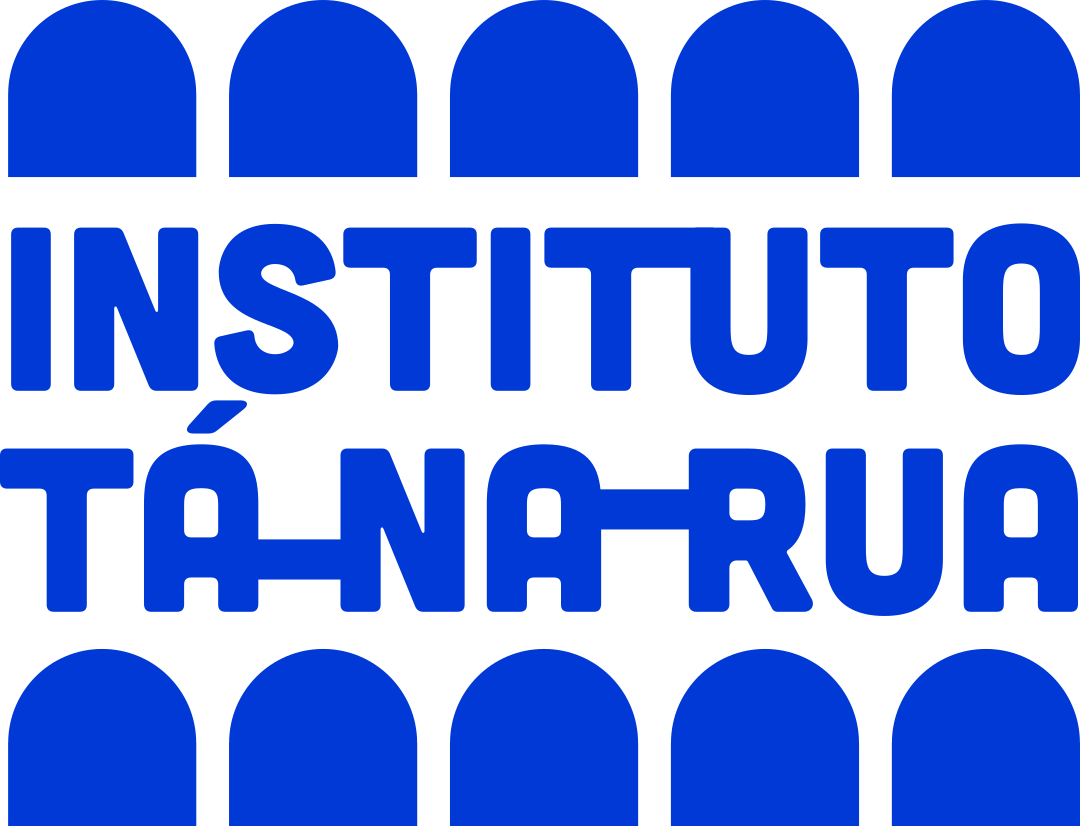In 1999, the Tá Na Rua group decided to structure itself as an NGO, giving rise to the Tá Na Rua Institute for Arts, Education, and Citizenship—the group’s legal and juridical formalization, created to act as an overarching framework that unites and supports all its activities, which, in reality, are interconnected development areas bound by the same work process applied across them.
The Institute is therefore a non-profit organization comprised of the following sectors: the Tá Na Rua Theater Group (artistic production); the Tá Na Rua House Cultural Center, which hosts theater workshops and other cultural activities of the group; the Carioca School of Brazilian Performance (knowledge exchange and theatrical research); the Public Art Forum (citizenship); and the Administration and Production Office. Additionally, it houses the Tá Na Rua Archive—Center for the Group’s Memory and Documentation, containing all its documentary records.
Beyond being a juridical entity, however, the Tá Na Rua Institute embodies a broader vision related to the group’s desire for greater organization of its work, with a well-defined structure that meets the needs and capabilities proposed and required by its practices for proper development. This aspiration dates back to its early years in the 1980s, when the growth of workshops and street performances sparked the desire to go beyond the simple configuration of a group and establish a larger structure that would allow the creation of a theater school.
Conceived with the same philosophy that underpins the Tá Na Rua group’s work, the Institute serves as a center for theatrical research aimed at developing and training actors who, in addition to mastering their craft, can also form and express opinions on issues concerning humanity and society. The goal is to create a theater that, like the world, is always evolving and transforming. Therefore, actors need to remain in constant contact with their surroundings, reflecting on and forming opinions about reality to consciously, aesthetically, and ethically contribute to its transformation—and to their own. This vision seeks to cultivate an actor who not only practices their craft but also exercises their citizenship; an actor engaged with and concerned about social changes: a Citizen Actor!
The Institute is also tasked with following key principles inspired by the vision of Amir Haddad, its mentor, such as the importance of strengthening the collective, incorporating humor, and seeking and sharing acquired knowledge.
Situated in the culturally vibrant Lapa district, the Tá Na Rua Institute for Arts, Education, and Citizenship serves as a living heritage of Brazilian culture, rescuing elements of our cultural traditions, (re)building the collective memory of popular rituals and festivals, and staying in tune with contemporary life and history.

